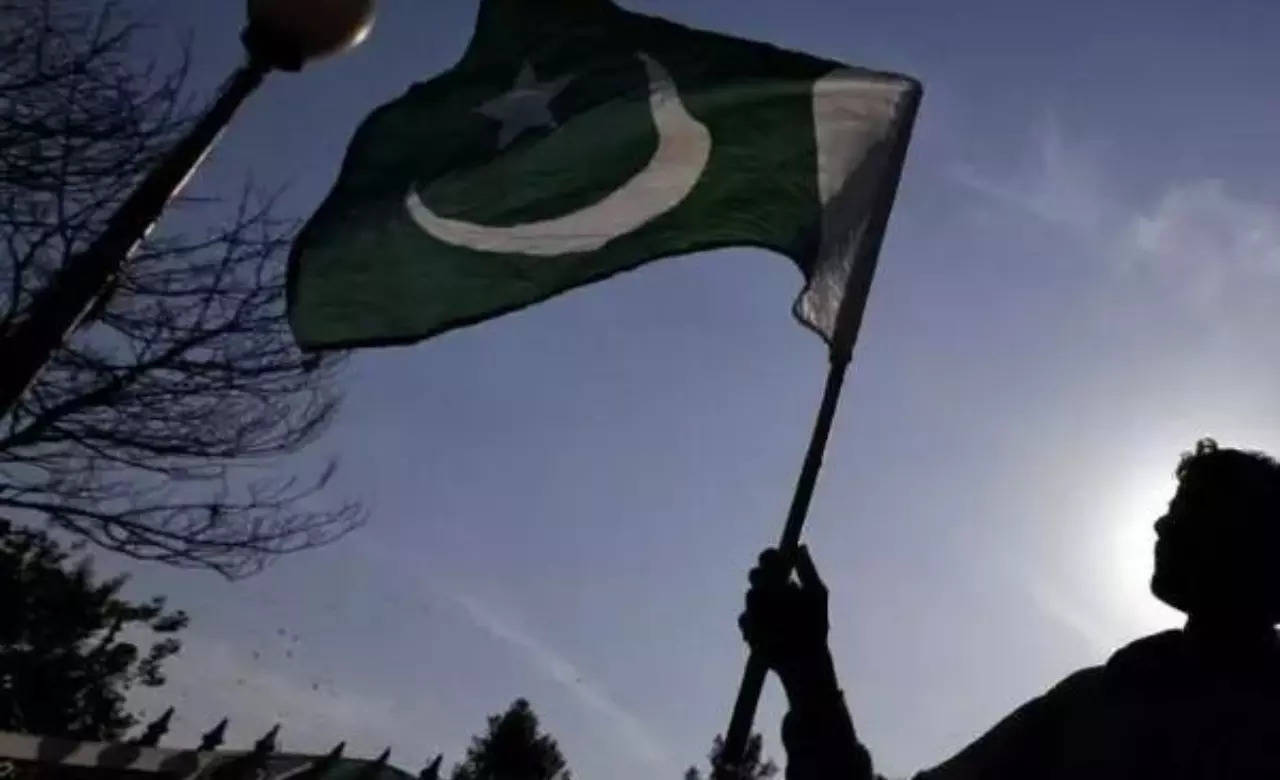[ad_1]
Outgoing Prime Minister Shehbaz Sharif and the Leader of Opposition Raja Riaz finalised his name after two rounds of deliberations over the matter.
Prime Minister Sharif recommended the dissolution of the National Assembly on August 9, three days before the mandated term, therefore, according to the Constitution, the next general elections will be held in 90 days.
But uncertainty looms over the date as the nation grapples with constitutional, political and economic crises.
Kakar and his cabinet will run the government until a national election is held and the winner can secure a parliamentary majority and select a new prime minister.
Here are some key questions on the situation and how the next few months are expected to play out.
Will the elections be delayed?
Kakar’s caretaker government must hold elections within 90 days. However, after the outgoing government approved a new census in its final days, new electoral boundaries must be drawn up by the Election Commission.
The exercise of drawing fresh boundaries for hundreds of federal and provincial constituencies in a country of 241 million people may take six months or more, according to a former commission official.
The Election Commission has to announce how long it will take to complete the exercise, which may also involve litigation by candidates over the new formations of the constituencies, and, based on that, give an election date.
What is the role of the caretaker government?
Caretakers typically have the role of supervising elections, but Kakar’s arrangement will be the most empowered in Pakistan’s history thanks to recent legislation that allows it to make policy decisions on economic matters.
This move is ostensibly designed to ensure the steady progress of a nine-month, $3 billion bailout from the International Monetary Fund (IMF), which was obtained in June. At least one out of the three program evaluations coincides with the caretaker phase, with the possibility of more if elections happen to be postponed.
The IMF has already garnered agreement from all political parties regarding the direction of policies.
What is the military’s role?
The military still has a huge role behind the scenes. It has ruled Pakistan directly for over three decades of the country’s 76-year existence, and wields extraordinary political power.
Kakar’s party, the Balochistan Awami Party, is widely considered to be close to the military.
Political experts express concerns that should the caretaker arrangement exceed its constitutional term, an extended duration lacking an elected administration could potentially enable the military to strengthen its authority.
Will Imran contest the polls?
As it stands, former prime minister Imran Khan, the main opposition leader, cannot fight this election.
Khan is currently jailed for three years after being convicted on graft charges and is barred from contesting any elections for five years.
His party, the Pakistan Tehreek-e-Insaf (PTI), won the last general election in 2018, and he became prime minister until his ouster in a no-confidence vote in 2022.
Who are the main contenders?
There are three main contenders to lead the next government: Khan’s PTI, the Pakistan Muslim League-Nawaz (PML-N) of Shehbaz Sharif and the Pakistan Peoples Party (PPP).
With Khan in jail and barred from the polls, his PTI will hope to exploit supporters’ sympathy and anger and repeat its 2018 victory. But amidst a continuing standoff with the military, PTI’s prospects hinge on a detente with the generals, which looks unlikely.
Three-time premier Nawaz Sharif, the brother of the outgoing prime minister and whose PML-N was the senior partner in the outgoing coalition government, is seeking a return from exile. But with a corruption conviction against him still in force, Shehbaz remains a front runner to return to power.
Bilawal Bhutto Zardari, 34, the young chairman of the PPP and son of former prime minister Benazir Bhutto, is another key candidate. He made waves locally and in foreign capitals in his first government job as foreign minister in the outgoing government, and is widely seen as a future premier.
Challenges in the run up to the polls?
The primary hurdle lies in achieving economic stabilization for the $350 billion economy, which is currently navigating a narrow path to recovery subsequent to the IMF bailout that averted a sovereign debt crisis. Economic reforms have already led to significant inflation and elevated interest rates, marking a historic trend.
Adding to the complexity is the element of political uncertainty following Khan’s imprisonment and prohibition. While his arrest did not trigger violence, in contrast to the turmoil caused by his supporters in May, his prolonged detention will inevitably raise concerns regarding the legitimacy of the upcoming election.
In case the elections experience a delay beyond the 90-day limit, it’s anticipated that constitutional and legal matters will arise. The proactive Supreme Court, known for its involvement in interpreting constitutional queries, could potentially intervene.
[ad_2]
Source link











More Stories
We can’t wait to face India in the final: Pat Cummins | Cricket News
Railways plans 3,000 additional trains in next 4-5 years to minimise number of waitlisted tickets | India News
Faridabad: Man dies after ‘falling from hotel room window’ while partying with friends